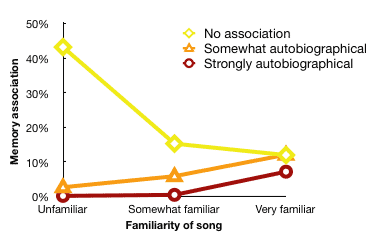Music literally changes your brain. There are so many positive benefits of music and specifically for your brain. As a musician, I might be slightly biased when it comes to the benefits of music, but the research backs up my bias.
Dr. Charles Limb, associate professor of otolaryngology and head and neck surgery at Johns Hopkins University, explains: "I think there's enough evidence to say that musical experience, musical exposure, musical training, all of those things change your brain. It allows you to think in a way that you used to not think, and it also trains a lot of other cognitive facilities that have nothing to do with music."
Dr. Charles Limb, associate professor of otolaryngology and head and neck surgery at Johns Hopkins University, explains: "I think there's enough evidence to say that musical experience, musical exposure, musical training, all of those things change your brain. It allows you to think in a way that you used to not think, and it also trains a lot of other cognitive facilities that have nothing to do with music."
Here's a video clip of Dr. Limb explaining his studies on cochlear implants and how music affects the brain:
accessed 2 Dec. 2012.
A study done at Stanford University showed that music helps move the brain to pay attention. The research "showed that music engages the areas of the brain involved with paying attention, making predictions and updating the event in memory." Interestingly enough, however, they found that "peak brain activity occurred during a short period of silence between musical movements—when seemingly nothing was happening." Dr. Jonathan Berger, associate professor of music at Stanford, explained that "music engages the brain over a period of time and the process of listening to music could be a way that the brain sharpens its ability to anticipate events and sustain attention."
Another example of a benefit is that music can help you remember concepts that are typically more difficult to remember. Rilla Chaney, a teacher coach, explains how she used music to help her students remember science concepts. It might seem a bit silly but it seems to work! Listen to her tell of her experiences with music memorization:
(UPDATE: embedded link has been taken down - sorry)
Another example of a benefit is that music can help you remember concepts that are typically more difficult to remember. Rilla Chaney, a teacher coach, explains how she used music to help her students remember science concepts. It might seem a bit silly but it seems to work! Listen to her tell of her experiences with music memorization:
(UPDATE: embedded link has been taken down - sorry)
I've listed a couple of examples of how music benefits your brain but there are countless more. As time passes I will update this blog with more of my findings on this topic. In the mean time, I've listed a few articles on how music benefits the brain:


